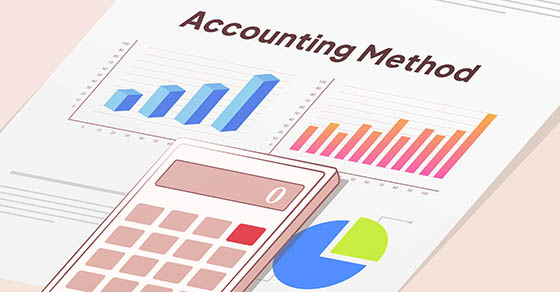Is your home office a tax haven? Here are the rules for deductions
- ByPolk & Associates
- Sep, 25, 2024
- All News & Information
- Comments Off on Is your home office a tax haven? Here are the rules for deductions
If you’re a business owner working from home or an entrepreneur with a side gig, you may qualify for home office deductions. On the other hand, employees who work remotely can’t deduct home office expenses under current federal tax law. To be eligible for a deduction, you must use part of your home regularly and exclusively as your principal place of business, or a place to meet with customers, clients or patients in the normal course of business. Typically, the business use percentage is determined by your home office’s square footage, but other methods exist. We can address questions about the best way to compute home office deductions and the tax implications when you sell your home.
Help ensure your partnership or LLC complies with tax law
- ByPolk & Associates
- Sep, 25, 2024
- All News & Information
- Comments Off on Help ensure your partnership or LLC complies with tax law
When drafting partnership and LLC operating agreements, various tax issues must be addressed. This is also true of multi-member LLCs that are treated as partnerships for tax purposes. Here are some critical issues to include in your agreement so your business remains in compliance with federal tax law. Identify and describe guaranteed payments to partners […]
IT strategy showdown: Enterprise architecture vs. Agile
- ByPolk & Associates
- Sep, 25, 2024
- All News & Information
- Comments Off on IT strategy showdown: Enterprise architecture vs. Agile
As businesses grow, their IT needs and infrastructures become increasingly complex and costly. This push and pull of managing growth while grappling with tech has brought two broad approaches to IT strategy to the forefront: enterprise architecture and Agile. Enterprise architecture focuses on mindfully designing or adapting a companywide framework for choosing, implementing, operating and supporting technology. Meanwhile, Agile generally approaches IT strategy on a project-by-project, collaborative basis. The idea is to be as nimble as possible. The two aren’t mutually exclusive. It’s simply important to regularly reassess how to best manage your company’s IT infrastructure.
Which leadership skills are essential to strategic planning?
- ByPolk & Associates
- Sep, 11, 2024
- All News & Information
- Comments Off on Which leadership skills are essential to strategic planning?
To help ensure stability and profitability, businesses need to engage in strategic planning. But which leadership skills are essential to this endeavor? Among the five most important are the ability to: 1) View the company realistically and aspirationally; accurate information and a sound vision are key. 2) Analyze the industry and market to foresee impending changes. 3) Understand customers and anticipate their needs; the latter point is perhaps the biggest challenge of strategic planning. 4) Recognize the company’s capabilities and resources. 5) Communicate effectively. We can help your business gather the financial information it needs to plan for the future confidently and decisively.
Working remotely is convenient, but it may have tax consequences
- ByPolk & Associates
- Sep, 11, 2024
- All News & Information
- Comments Off on Working remotely is convenient, but it may have tax consequences
These days, many employees work remotely. While there are lots of advantages, it may also lead to some tax surprises, especially if a job crosses state lines. If you live in one state and work remotely for an employer in another state, you may need to file income tax returns in both states. This could result in increased (or even double) taxation. Do you get any tax breaks for working remotely? Under current law, employees generally can’t deduct unreimbursed job-related expenses through 2025. Remote workers also aren’t currently eligible for the home office deduction either. That deduction is generally limited to self-employed business owners. Contact us with questions about your situation.
Cash or accrual accounting: What’s best for tax purposes?
- ByPolk & Associates
- Sep, 11, 2024
- All News & Information
- Comments Off on Cash or accrual accounting: What’s best for tax purposes?
Many businesses have a choice between using the cash or accrual method of accounting for tax purposes. The cash method often provides significant tax benefits for businesses that qualify, but some may be better off using the accrual method. Cash-basis businesses recognize income when it’s received and deduct expenses when they’re paid, so they have greater control over the timing of income and deductions. In contrast, accrual-basis businesses recognize income when it’s earned and deduct expenses when they’re incurred, regardless of the timing of cash receipts or payments. That means they have less flexibility to time income or expenses. We can help you evaluate the most beneficial approach.
Business owners sometimes need to switch successors
- ByPolk & Associates
- Sep, 11, 2024
- All News & Information
- Comments Off on Business owners sometimes need to switch successors
For many business owners, choosing a successor is a difficult task. What’s worse, many owners’ initial picks for successor can turn out to be dubious choices. If you find yourself in this situation, don’t panic. First, discuss the matter with objective parties such as your professional advisors and trusted family members or colleagues. If you then decide to stick with your successor, talk about your concerns with the individual and look for ways to address what’s troubling you. If you determine that you must pick someone new, tell your initial successor as soon as possible and explain why. Then, review and improve your succession planning process to avoid making the same mistake twice.
Reasons an LLC might be the ideal choice for your small to medium-size business
- ByPolk & Associates
- Sep, 11, 2024
- All News & Information
- Comments Off on Reasons an LLC might be the ideal choice for your small to medium-size business
For many businesses, a limited liability company (LLC) is an enticing choice. It can be structured to resemble a corporation for owner liability purposes and a partnership for federal tax purposes. This may provide the owners with several advantages. Like corporate shareholders, LLC owners or members generally aren’t liable for business debts except to the extent of their investment. Plus, there may be tax benefits. For example, earnings aren’t subject to entity-level tax. Instead, they flow through to owners in proportion to their interests in the profits. They’re reported on the owners’ individual returns and taxed only once. Contact us to discuss whether an LLC is the best option for you.
Brand audits can help companies in a variety of ways
- ByPolk & Associates
- Sep, 11, 2024
- All News & Information
- Comments Off on Brand audits can help companies in a variety of ways
A strong brand is critical to differentiating your business from competitors and can help boost revenue. A weaker brand can reduce sales opportunities and stifle growth. But brand strength isn’t easy to measure. That’s why many companies conduct brand audits. These are formal reviews of brand efficacy and market standing. There are various ways to conduct a brand audit. But most include gathering and analyzing readily available business information such as sales data, website analytics and social media interactions. They also may involve brand-focused customer and employee surveys. Ultimately, done properly, a brand audit can help with marketing, strategic planning and even fraud prevention.
Are you liable for two additional taxes on your income?
- ByPolk & Associates
- Sep, 11, 2024
- All News & Information
- Comments Off on Are you liable for two additional taxes on your income?
High-income taxpayers may face two extra taxes: the 3.8% net investment income tax (NIIT) and a 0.9% additional Medicare tax. On top of income tax, the NIIT applies on net investment income. It affects taxpayers with adjusted gross incomes exceeding $250,000 for joint filers, $200,000 for singles and heads of household, and $125,000 for married people filing separately. Income subject to the NIIT includes interest, dividends, annuities, royalties, rents and net gains from property sales. Wage income and income from an active trade or business aren’t included. However, passive business income is subject to the NIIT. Contact us to discuss extra taxes and how their impact may be reduced.











You must be logged in to post a comment.